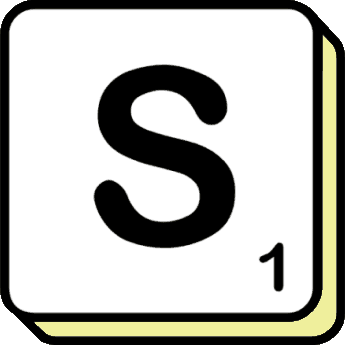Mastering Mnemonics
Author: Brian Bowman
Date Published: 29 May 2023
In a world filled with information overload, the ability to remember and recall important details can be a game-changer. This is where mnemonics, the art and science of memory techniques, come into play. In this blog article, we'll delve into the fascinating world of mnemonics, exploring their purpose, benefits, and providing a collection of practical examples to help you unlock the full potential of your memory.

The Essence of Mnemonics
Mnemonics, derived from the Greek word "mneme" meaning "memory," refer to strategies and techniques designed to enhance memory retention and retrieval. Mnemonics provide a structured approach to encode information in a memorable way, making it easier to recall when needed. These techniques have been utilized for centuries to aid in the memorization of facts, lists, numbers, foreign languages, and more.
The Science Behind Mnemonics
Mnemonics leverage several principles of human cognition to enhance memory. One such principle is the use of mental imagery, as the human brain is highly adept at recalling vivid and imaginative visual representations. Association is another key aspect, as connecting new information with existing knowledge creates a web of interconnected memories. Chunking, breaking information into smaller, manageable units, is also a common mnemonic strategy that helps improve recall.
The Benefits of Mnemonics
Mnemonic techniques provide a structured approach to memorization, improving the encoding and retrieval of information. By employing these techniques, you can remember facts, figures, and complex concepts with greater ease.
Time-Saving: Mnemonics enable more efficient learning by reducing the time needed to commit information to memory. By leveraging memory associations and visual imagery, you can accelerate the learning process.
Increased Retention: Mnemonic techniques promote long-term retention by creating strong mental connections and associations. Information encoded using mnemonics is less likely to fade away over time.
Versatility: Mnemonics can be applied to various learning scenarios, including studying for exams, memorizing speeches or presentations, learning new languages, or remembering lists and sequences.
Engagement and Creativity: Mnemonic techniques stimulate creativity and engage your imagination, making the learning process more enjoyable and memorable.
Practical Examples of Mnemonics
Acronyms: Acronyms are words formed by the initial letters of a series of words or concepts. For example, "HOMES" represents the names of the five Great Lakes in North America (Huron, Ontario, Michigan, Erie, Superior).
Visualization: Create vivid mental images to represent information. For instance, to remember a shopping list that includes bread, eggs, and milk, visualize a loaf of bread wearing a hat, eggs juggling, and a carton of milk with legs dancing.
Method of Loci: This ancient technique involves mentally associating information with specific locations along a familiar route or in a familiar place. As you mentally traverse the route or location, you can recall the associated information. For example, to remember a list of items, imagine placing each item at a specific spot in your home or a familiar street.
Rhymes and Jingles: Utilize rhymes, songs, or jingles to remember information. The alphabet song is a classic example of this mnemonic technique.
Storytelling: Create a narrative or story that incorporates the information you want to remember. By connecting the elements of the story to the information, you can recall it more easily.
Incorporating Mnemonics into Daily Life
Education: Students can utilize mnemonic techniques to remember important facts, historical dates, mathematical formulas, and vocabulary.
Language Learning: When learning a new language, mnemonics can help remember vocabulary words and grammar rules. Creating associations between foreign words and familiar objects or visualizing scenarios can greatly aid retention.
Public Speaking: Mnemonic techniques can assist in delivering speeches or presentations without relying heavily on notes. By associating key points with vivid mental images or creating a storyline, you can recall your talking points more naturally.
Memorizing Numbers: Mnemonics can be particularly helpful when memorizing numbers, such as phone numbers, PIN codes, or mathematical constants. Using visual imagery, you can assign unique images or associations to each digit or set of digits, creating a memorable sequence.
Medical Terminology: Healthcare professionals often employ mnemonic devices to remember complex medical terms and anatomical structures. By crafting acronyms or visualizing associations between terms and their meanings, medical students and professionals can retain information more effectively.
Cultivating Mnemonic Skills
Practice Regularly: Mnemonic techniques improve with practice. Dedicate time to regularly engage in memory exercises and apply mnemonic strategies to various areas of your life.
Customize Techniques: Experiment with different mnemonic techniques to find what works best for you. Everyone has unique learning styles and preferences, so adapt the techniques to suit your needs and strengths.
Utilize Technology: Leverage mnemonic apps, online resources, and digital flashcards that incorporate mnemonic techniques. These tools can provide additional support and guidance as you hone your mnemonic skills.
Combine Techniques: Feel free to combine different mnemonic techniques to reinforce your memory. For instance, you can use acronyms alongside visualization or storytelling to enhance recall.
Stay Focused and Relaxed: Mnemonic techniques are most effective when you are focused and relaxed. Minimize distractions, find a quiet environment, and maintain a calm and attentive mindset when using mnemonics.
Conclusion
Mnemonics are powerful tools that unlock the potential of our memory. By tapping into the principles of association, visualization, and creative thinking, mnemonics enhance our ability to remember and recall information. From acronyms and visualization to storytelling and the method of loci, these techniques offer practical and versatile ways to improve memory in various domains of life.
By incorporating mnemonic techniques into your daily routine, you can accelerate learning, boost retention, and unleash the full potential of your memory. So, embrace the power of mnemonics and embark on a journey of improved memory and enhanced cognitive abilities.
